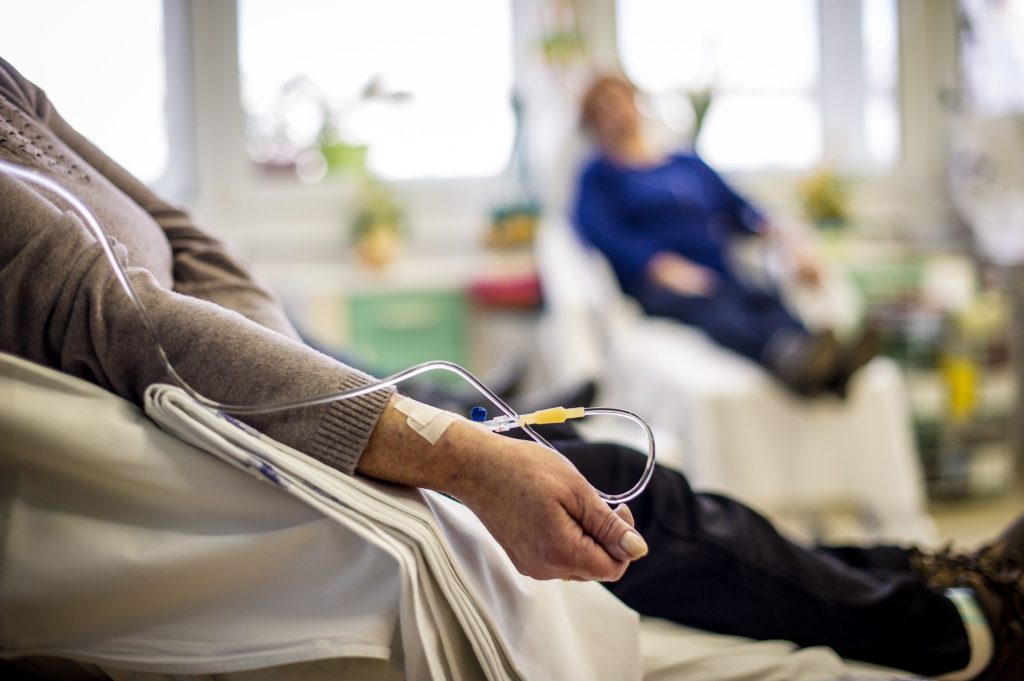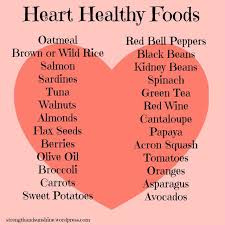
Recently Diagnosed or Relapsed? Stop Looking For a Miracle Cure, and Use Evidence-Based Therapies To Enhance Your Treatment and Prolong Your Remission
Multiple Myeloma an incurable disease, but I have spent the last 25 years in remission using a blend of conventional oncology and evidence-based nutrition, supplementation, and lifestyle therapies from peer-reviewed studies that your oncologist probably hasn't told you about.
Click the orange button to the right to learn more about what you can start doing today.
- You are here:
- Home »
- Blog »
- Multiple Myeloma »
- Chemotherapy Caused My Myeloma Relapse?!?!
Chemotherapy Caused My Myeloma Relapse?!?!

“While chemotherapy does save lives, it often comes with a very high price…” “Our work in mice studied the effects of chemotherapy on cancer relapse and other serious side effects…”
Research confirms that chemotherapy and radiation cause our bodies to age, cause short, long-term and late stage side effects and can cause our cancer to relapse.
All of which makes sense to MM patients and survivors. I mean, MM always relapses. MM always comes back.
As cautious or anti-chemo as I am however, I admit that almost all MM survivors need at least a little chemo from time to time.
The issue then, in my opinion, is not yes or no to conventional therapies like surgery, radiation and chemotherapy. The issue is how much toxicity is okay and how can the cancer survivor heal him/herself once they complete their therapy.
- Pro-inflammatory stress response promotes chemotherapy side effects and cancer relapse
- Chemotherapy-enhanced inflammation may lead to the failure of therapy and metastasis
- Paradoxical effects of chemotherapy on tumor relapse and metastasis promotion
The answer is evidence-based meaning therapies supported by research but do not expect your oncologist to discuss it with you. Evidence-based non-conventional therapies shown to reduce cancer inflammation and relapse such as:
- Curcumin, resveratrol and other nutritional supplements
- Nutrition
- Lifestyle Therapies
will certainly help you reduce your risk of relapse yet because they are not “FDA approved,” your oncologist won’t discuss them. And certainly he/she will not prescribe them. This is simply the way that cancer medicine works in the U.S.
I read many cancer patients asking if they can “eat junk food again once I finish chemo?” Or I read about cancer patients celebrating being cancer-free once they reach remission and complete chemo and radiation. And this is great.
Returning to “eating junk food” once they finish their chemo and/or radiation will further increase inflammation in their bodies. Increased inflammation increases their risk of relapse.
My belief and experience as a long-term cancer survivor is that active therapy is only the first step in your life as a cancer survivor. The step following surgery, chemotherapy and radiation is to live an evidence-based, non-toxic, anti-cancer lifestyle through nutrition, nutritional supplementation and lifestyle therapies such as exercise, whole body hyperthermia, etc.
And here’s the pay-off. The evidence-based, non-toxic lifestyle that I’m referring to will
- slow the aging of your body,
- stabilize and possibly heal side-effects and
- make you feel a whole lot better!
At least that’s what the studies say. And that’s what I experienced. Your challenge is this thinking, these therapies will not be part of your “standard-of-care” conventional therapy plan. Again, no problem.
Conventional oncology focuses on “curing” your cancer. Keep in mind that oncology’s definition of a cancer cure is specific and may be different from your definition of the word “cure.”
As long as you understand what your oncologist is focusing on and as long as you understand what he/she is doing, what their goal is compared to your goal, you should be fine.
So understand that once your conventional surgery, chemotherapy and radiation therapy plan is finished, consider switching to living an evidence-based, non-toxic, non-conventional anti-cancer lifestyle. You’ll be glad you did.
- To Learn More About Myeloma Side Effects- click now
- Learn about my long-term myeloma survivor experience- click now
- To Learn More about Relapsed myeloma- click now
- To Learn More about chemicals as a cause of cancer- click now
- To Learn More about Reminiscence Therapy-click now
- To Learn More about short, long-term and late stage side effects- click now
To learn more, to ask any and all questions, please scroll down the page and post a question or a comment. I will reply to you ASAP.
Thanks and hang in there-
David Emerson
- MM Survivor
- MM Cancer Coach
- Director PeopleBeatingCancer
Recommended Reading:
- Novel Stem Cell Therapy- Heal Avascular Necrosis?
- 1 in 4 Chemo Drugs Cardio-toxic aka cause Heart Failure
- Chemotherapy-Induced Aging- Non-Toxic Therapies
Pro-inflammatory stress response promotes chemotherapy side effects and cancer relapse
“Standard chemotherapy is a blunt force instrument against cancer – and it’s a rare cancer patient who escapes debilitating side effects from systemic treatments that mostly affect dividing cells, both malignant and healthy, throughout the body…
While chemotherapy does save lives, it often comes with a very high price,” said Judith Campisi, PhD, of the Buck Institute and senior scientist on the study. “Our work in mice studied the effects of chemotherapy on cancer relapse and other serious side effects. It provides a proof-of-principle that we hope can be translated into clinical practice…
Campisi’s latest work highlights the two-faced nature of cellular senescence. It’s a biological mechanism that puts a break on cancer by permanently stopping stressed cells from dividing, but it also contributes to aging and late-life cancers. That’s because senescent cells are not benign – they secrete inflammatory molecules that damage neighboring tissues and cells. “Chemotherapy induces widespread senescence, contributing to persistent local and systemic inflammation,” Campisi said. “That’s why many patients feel so awful following treatment…”
Chemotherapy-enhanced inflammation may lead to the failure of therapy and metastasis
“The lack of therapy and the failure of existing therapy has been a challenge for clinicians in treating various cancers. Doxorubicin, 5-fluorouracil, cisplatin, and paclitaxel are the first-line therapy in various cancers; however, toxicity, resistance, and treatment failure limit their clinical use…
Drug resistance and failure remains a major challenge in cancer therapy. Two broad categories have been identified that classify cancer resistance on the basis of response to chemotherapy: primary and acquired.1Although primary resistance precedes initial chemotherapy, acquired resistance involves an accumulation of genetic changes after clinical intervention until tumor cells develop resistance phenotypes.
A form of acquired resistance is mediated by the interaction of tumor cells with their microenvironment.1 Here, tumor cells circumvent the apoptotic effects of chemotherapy through cell adhesion-mediated resistance, in which tumor cell integrins adhere to fibroblast or the extracellular matrix;2 and soluble factor-mediated resistance, which induces the stroma to produce cytokines, chemokines, and growth factors.3–5..”
Paradoxical effects of chemotherapy on tumor relapse and metastasis promotion
“Several lines of compelling pre-clinical evidence identify chemotherapy as a potentially double-edged sword: therapeutic efficacy on the primary tumor may in fact be counterbalanced by the induction of tumor/host reactive responses supportive for survival and dissemination of cancer cell subpopulations.
This paradoxical effect of chemotherapy can affect different districts such as the primary tumor, the circulation and distant organs by simultaneously shaping properties and composition of tumor and stromal cells…”


